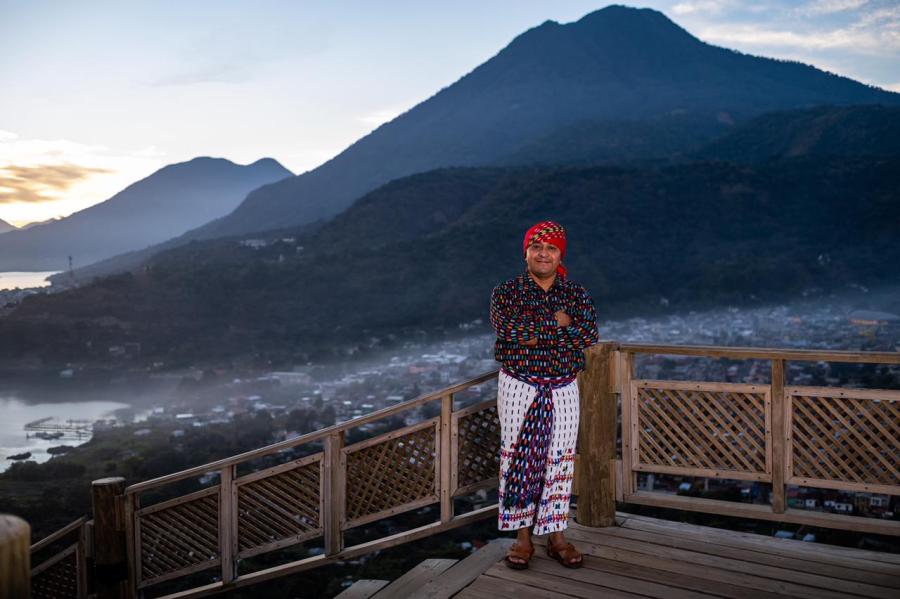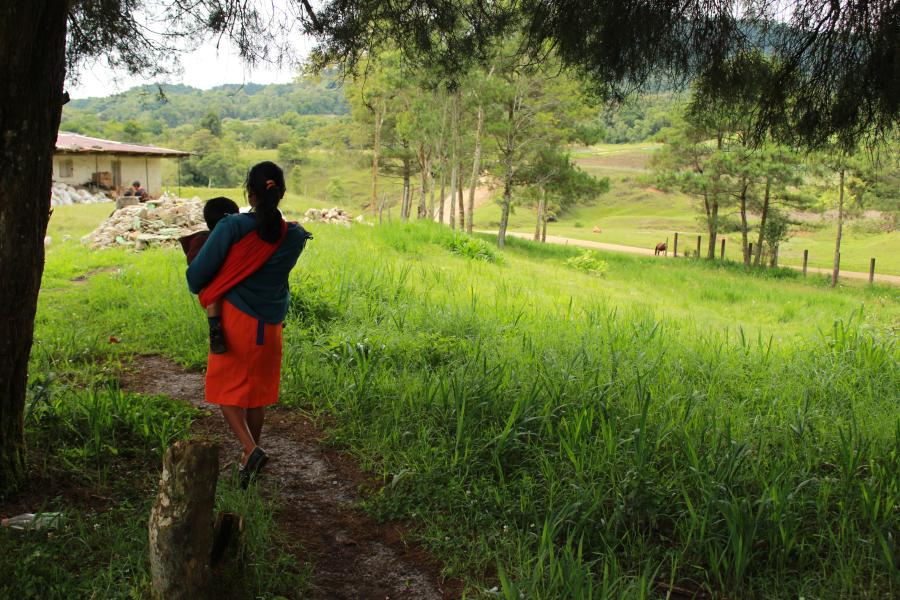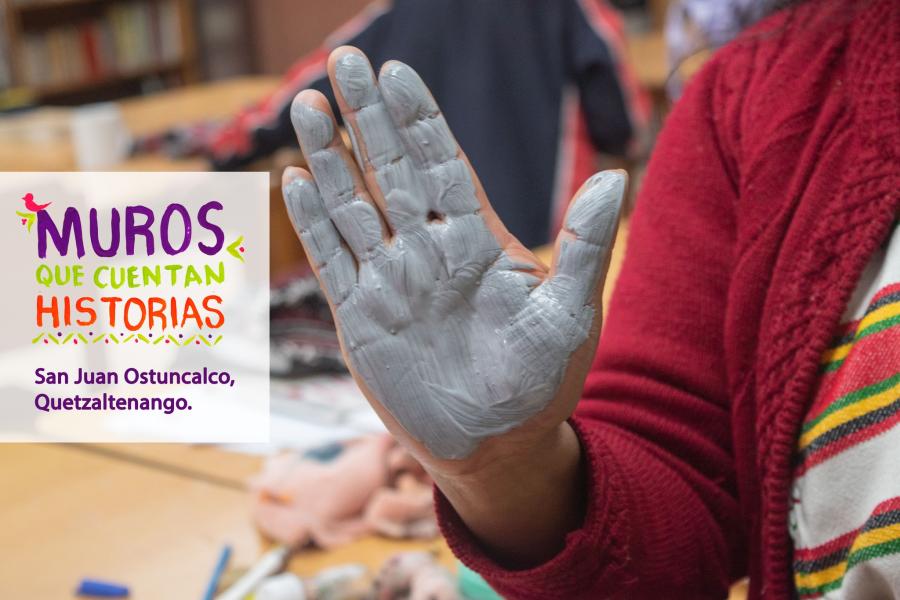
By Jess Cherofsky, with research was conducted in partnership with the RCA's Human Rights Investigations Lab at the University of California, Santa Cruz.
Content note: The following includes disturbing information on violence against Indigenous Peoples. We have strived to provide information in celebration of their lives and work, as well as acknowledging the violence against them without gratuitous detail. Please note that the sources linked may contain further details and images.
On Guatemala’s southeastern border with Honduras is the Maya Ch’orti community of La Cumbre, located in the Olopa municipality of the department of Chiquimula. Community member Medardo Alonzo Lucero was an Indigenous rights and land defender, struggling alongside his fellow community members and those of other communities in active resistance against mining project Cantera Los Manantiales, for which there had been no consultation with the community before initiating operations. On June 15, 2020, Medardo Alonzo Lucero was assassinated in the vicinity of the Los Vásquez village in La Cumbre. He was found at dawn with signs of torture and violence. According to the Human Rights Ombudsman of Guatemala, “The Indigenous authority of the community reported that the death is linked to the defense of the territory and the fight against mining.” Despite the denunciation of this murder by many human rights organizations, and despite constant intimidation of and attacks against community members, our research has not revealed any official police or government investigation.
In 2015, the Guatemalan government granted mining corporation InCamin, S.A., a license for their Cantera Los Manantiales project to mine for antimony without regard for local Indigenous communities’ right to Free, Prior and Informed Consent, a right to which Indigenous Peoples are entitled globally in accordance with the UN Declaration on the Rights of Indigenous Peoples, the International Labor Organization’s (ILO) Convention 169, and other international agreements. The resulting extraction has caused devastating ecological damage, including to the human health of local Indigenous communities whose territories the mines devour.
What are we fighting for? The defense of life, because water is life. - Carmelita Pérez
The Ch’orti’ People of La Cumbre live in ancient relationship with their land, including the Jupilingo River, which they consider a miracle in the otherwise arid Chiquimula environment. Members of the Ch’orti’ Peoples have described their land as “where we originate, where we all live, where we grow up, where we eat, and sit to rest...The land is, and has always been ours. It is the inheritance left by our ancestors.” According to Cultural Survival’s 2018 article on the Ch’orti’ land rights struggle, “Like most Mayan communities, the Ch’orti’ have suffered from theft of their lands, political repression, cultural loss, and recently, have been victims of media disinformation, arrest, and murder of their leaders who have dedicated their lives to defending their lands." They are engaged in a broad struggle to regain land access and title.
Antimony is a heavy metal use in the production of paint, enamel, fireworks, and cell phone and computer chips. When ingested, “it can cause irreversible damage”; thrombocytopenic purpura - a blood disorder - and Guillián Barré Syndrome - in which the immune system attacks the nerves - are among the new diseases appearing in the population. The people of La Cumbre and nearby communities have acted decisively to resist the mine as the river, plants, animals, and humans have faced an onslaught of illness. Fruit trees have lost their leaves and saplings have died; animals are sick and reproduction has failed. The Ch’orti’ People are suffering skin infections, eye irritation, organ illnesses, and overwhelmed immune systems. Further, as the community has struggled to survive in the midst of a drought, the contaminated river water further exacerbates a food security crisis. “We are Indigenous campesinos. We only live off beans and corn. And they have come to take everything that’s inside the soil,” said El Carrizal community member Isabel Ramírez. Fellow community member Guillermno Ramírez commented, “The company has knocked down trees, and as you know, the forests are our lungs. The day the forests are gone, we will die of thirst, because it will stop raining and the water sources will dry up.”
In February 2019, the Ministry of Environment and Natural Resources reported to the Ministry of Energy and Mines that the company was “not in compliance with minimum environmental requirements.” In August, Indigenous authorities of Olopa, supported by the Association of Mayan Lawyers and Notaries Nim Ajpu, appealed to the Supreme Court of Justice to “demand their right to a Free, Prior, and Informed Consultation,” and in November 2019, the court ordered a temporary suspension of the mine. Yet the Ch’orti Indigenous Council of Olopa reported in April 2020 that the mine was continuing to operate, violating both the court-ordered suspension and Guatemalan COVID-19 containment measures.
Living in the Shadow of Intimidation
Medardo Alonzo Lucero’s murder is only among the most recent of many attacks and harassment against Indigenous rights and land defenders in the years since the Cantera Los Manantiales mining project began in 2016, and the instances highlighted here are only a few of numerous efforts to intimidate, defame, and end the lives of community members struggling on behalf of their rivers, forests, and the Ch’orti People. In 2016, twenty-two leaders who engaged in nonviolent protest were criminalized. In March 2019, mine owner Odilio Guzmán Salazar gathered a group of armed men to assault and intimidate peaceful Ch’orti resisters participating in a rotating 24/7 blockade known as a “resistance point.” In July 2019, company representatives shot at peaceful protesters, and the “alleged owner of the company” drove a vehicle into the crowd, injuring community leader Irma Méndez. Méndez’s husband, 36-year-old Elizandro Pérez, “the foremost Indigenous authority in his community, [had] died in mysterious circumstances [in November 2018] that have still not been investigated by the Public Prosecutor’s Office.” Pérez’s body had been found in his home, and “while the events surrounding his death have not yet been clarified, it is important to highlight that in the month preceding his death, Pérez had been the target of repeated intimidation and death threats for his participation in territorial defense.” Community leader Francisco Ramírez received notes containing death threats; the District Attorney failed to investigate his complaints. In August 2020, robbers broke into Ch’orti’ defender Ubaldino García Canan’s home, stealing documents, which suggests that this was not merely an economically motivated robbery but a political one. This was only one of many instances of intimidation to which Ubaldino has been subject, including other raids and threats.
Medardo’s brother, Ovidio Alonzo Lucero, has received death threats from the people who allegedly killed his brother. Ovidio is a community leader and current Vice President of the Indigenous Council of La Cumbre. According to a report by the International Federation For Human Rights, the day after Medardo Alonzo Lucero’s murder, the men who allegedly killed him showed up at a meeting regarding the murder between Ovidio and officials from the District Attorney’s office. This was followed by threats that Ovidio would be assassinated if he kept seeking justice for his brother, and an unknown vehicle was observed surveilling his home.
These devastating cases of violence against people peacefully resisting extractive companies fit into a larger panorama of violence against Indigenous human rights and land defenders in Guatemala and around the world. In the first five months of 2020 alone, the Guatemalan Human Rights Defenders Protection Unit registered 405 attacks against human rights defenders. Cultural Survival’s COVID-19 map is tracking both cases of COVID-19 in Indigenous communities and Indigenous rights violations linked to the pandemic. The Cantera Los Manantiales project leadership appears to be exploiting the lack of oversight resulting from the pandemic to increase attacks against the community and operate the mine despite a court order to suspend activity, which is consistent with a pattern of violence across Guatemala and globally.
Prensa Comunitaria described Medardo Alonzo Lucero as a “defender of the territory and natural resources, who according to authorities of this community, was part of the organized and peaceful fight for a mining and hydroelectric free territory.” Cultural Survival mourns Medardo Alonzo Lucero’’s unconscionable murder and calls upon Guatemala to take seriously the plague of violence against Indigenous human rights and land defenders and to hold accountable Medardo Alonzo Lucero’s’s murderers and those responsible for intimidating and interfering with the lives and health of his Ch’orti’ community members and their lands and territories. Guatemala must also ensure compliance with the injunction suspending Cantera Los Manantiales’ mining activities and respect for the Ch’orti’ communities’ right to Free, Prior and Informed Consent regarding activities on their lands.
Image courtesy of pbicanada.org.



